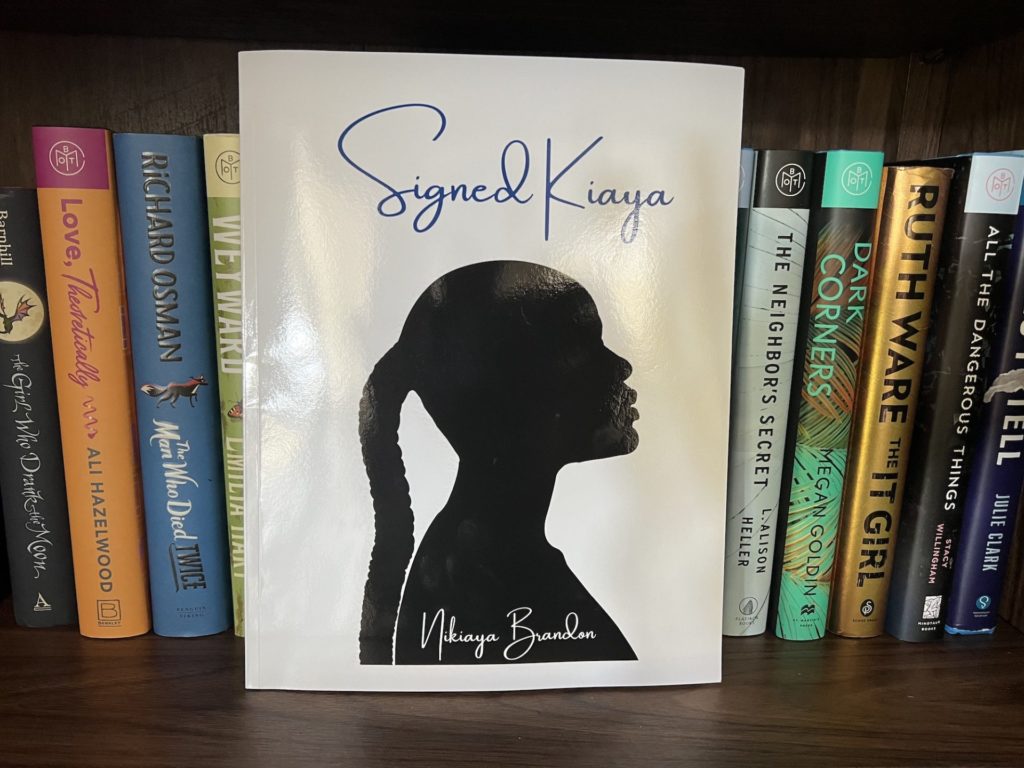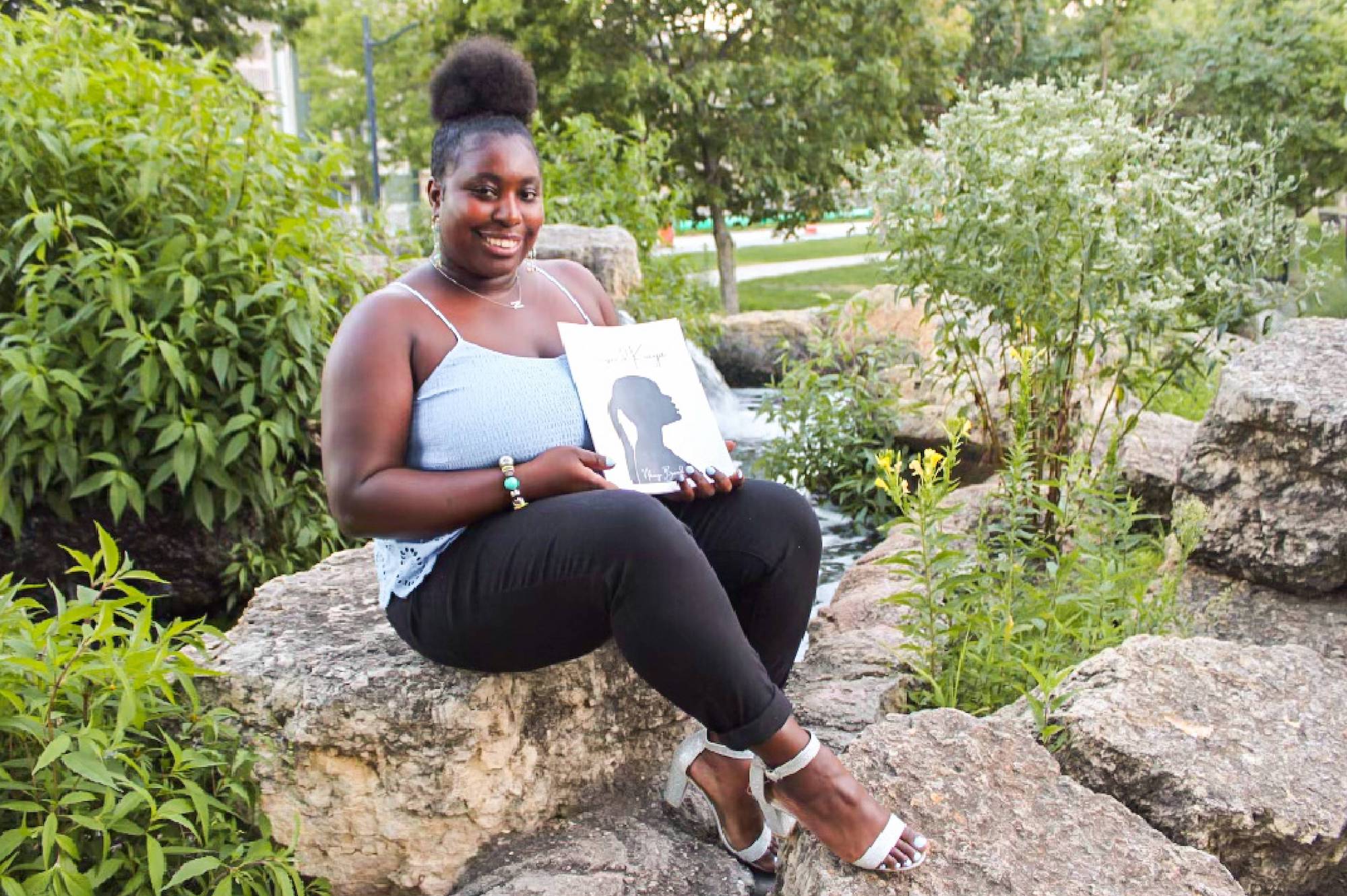I often think of consuming poetry as being a lot like listening to a new album: most people will read a single poem or listen to a song or two, but reading an entire poetry collection or listening to the whole album in order is a completely different experience (Think: Listening to All Night without the context of the entire Lemonade album. Unimaginable). So, naturally, when I sat down to read Signed Kiaya, a poetry collection from 23-year-old Nikiaya Brandon, I knew I needed to read it cover to cover. Brandon’s collection of 16 poems explores themes of identity, love, family, and Blackness.
Brandon is originally from Danville but has lived in Champaign since she was a child. A graduate of Centennial High School, she currently works at Champaign-Urbana Special Recreation as an Adult Program Coordinator. In her free time, she crafts deeply personal poetry. She told me she often writes on paper and records herself freestyling the poem out loud: “Sometimes my mind works faster than the pen, I then listen to what I recorded to fill in the missing parts.”
Brandon first started writing poetry in the fourth grade. While she couldn’t remember what she wrote about, she did remember her teacher being so impressed that she asked Brandon to read the poem in front of the whole class: “That’s when I knew that writing was a natural talent that I was blessed with and I needed to use it whenever I had the chance. Whether it was a talent show, Open Mic, or even my high school graduation.”

Signed Kiaya is her first published collection. Brandon told me that the poems in the collection were originally performed so they have a more dramatized style. Each of the three sections opens with a letter to the reader: “Writing the letters gives readers context on what they’re reading as well as the message that I want them to receive from each section. Each letter also has a significant date. Just Me is my birthday. B.L.A.C.K is Juneteenth and L.O.V.E is my late grandmother’s Birthday.”
I loved that Brandon’s voice came through so clearly both in the letters and in the poetry. The closing poem of the first section, When a poet speaks, explores her ability to convey her feelings and release frustrations in poetic form. I could probably write a few thousand words on the ways women poets have been dismissed through history in many different cultures. I won’t. Instead, I will say that I was very pleased to see this timeless reflection on the status of the woman poet in society, and Brandon’s voice is a welcome contribution to this long tradition.
The strength of the collection is undoubtedly Letter 2: B-L-A-C-K, a set of five poems. It opens with Black, a work which touches on depression, anger, violence, and ultimately the decision to keep fighting. Also included is 28 days, in which Brandon criticizes Black history month with such cutting lines as: “You give our kids a week of watered-down stories of enslavement / stories of untimely and injustice deaths and tell them that’s their black history // While giving us 28 days to deal with it.” The section closes with Dark Brown Skin, a celebration of skin that is “Mixed with gold and honey. / Skin that glows so sunny.” Brandon carefully weaves this story of Black resilience, and Dark Brown Skin is a beautiful conclusion to an otherwise solemn, but important, set of poems on Blackness.
I asked Brandon how this section in particular came together:
I’ve always been a person to be reflective of who I am as a black woman in America and how I can stand up and stand out despite the adversity and hand we’ve been dealt as a whole. My idea was to show how we as African Americans feel and what obstacles we face. As well as displaying where our frustration stems from and showing the disconnect from the outside looking in. I wanted to end with Dark Brown Skin because my skin represents my culture and the journey that my people have gone through to conquer each obstacle thrown our way. We always hear and see Black tragedies and that’s what fuels our anger. We really need to see more of the victories and triumphs from the past and present.
Brandon is currently working on a podcast with her best friend, as well as developing a women’s empowerment group that corresponds with the podcast. She plans to write another poetry collection and have it published at the same time next year.
If you want to experience Brandon’s poetry for yourself, you can grab her book at The Literary, or hear her perform her poems at Soul on Sunday, which is held the last Sunday of every month at Boomerang Bar and Grill.








